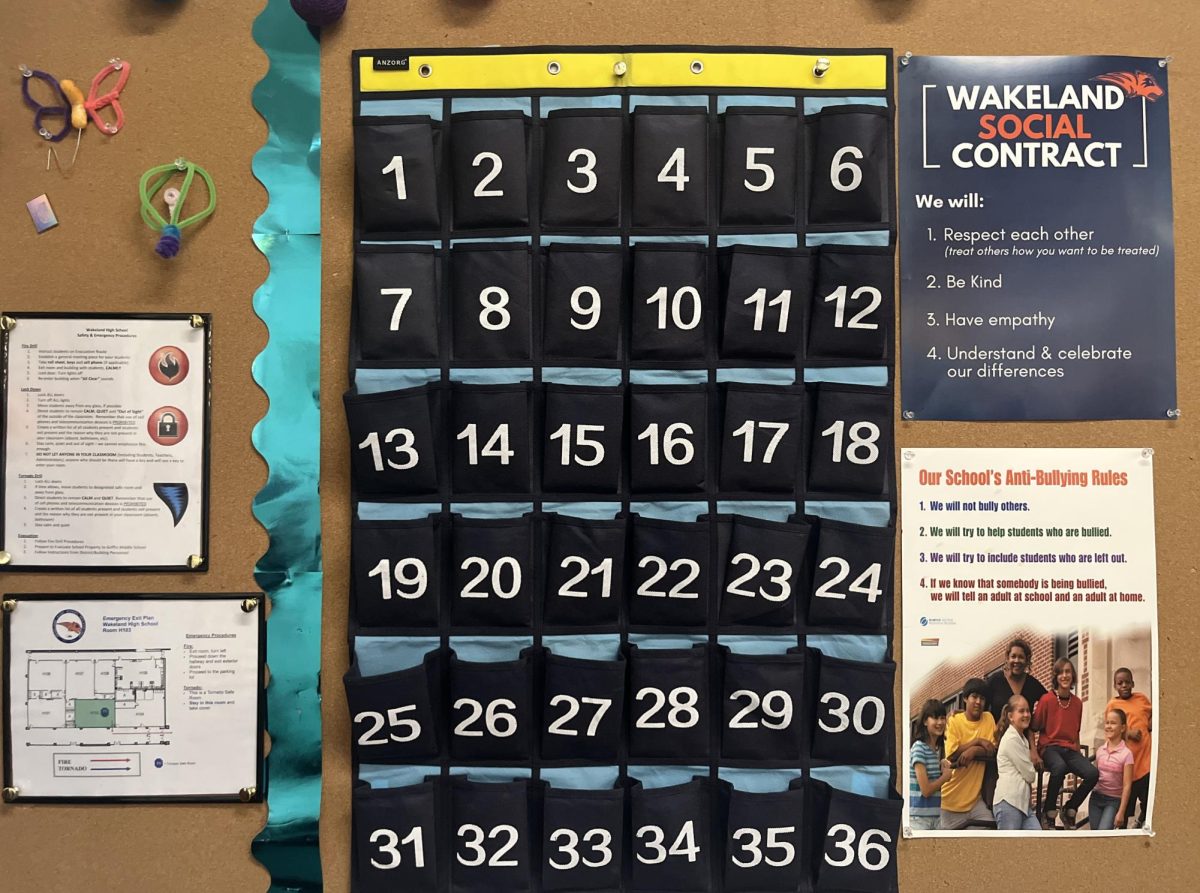Wakeland welcomed back its students for the 2023-2024 school year with lots of “new”- new lighting, new teachers, new activities, and a brand new cellphone policy that is stirring up commotion in the classrooms. In an effort to increase student focus during instruction, Wolverines were subject to the new policies since the first week of school.
The policy requires all students to keep their phones in designated areas upon entering the classroom, unless directly stated otherwise by the teacher. In addition, students seen carrying around cellphones in restrooms or hallways will face disciplinary action. These can include verbal warnings or, if the behavior persists, confiscation of the device, which students must pay to get back.
Technological development in recent years has skyrocketed, and with the introduction of things like Apple Pay and other forms of digital currency, social media and cell phone usage is only looking to increase. In an ever-changing world, school administrators are now faced with the unique challenge of navigating the role of technology in an educational setting.
According to a 2020 research letter from M.D. Pooja S. Tandon on phone policies in American middle schools and high schools, over 90% of principals supported restrictions on cell phone use. Likewise, over 80% of administrators believed that cell phone use during school has negative consequences for social development and academics.
Wakeland seems to be joining the overwhelming majority of schools that are taking action to combat those negative effects that technology might have on a student’s performance.
Another 2018 scholarly journal from Jessica S. Mendoza found that learning is impaired when attention is divided between lecture materials and distracting activities. This can result in lasting damage on a teen’s attention span and ability to focus. In spite of that, as stated in an article from City University Ajman, technology can also give students an opportunity to strengthen and exercise the time management skills needed for future jobs or career pathways.
Many students have mixed feelings on the change. Some Wolverines feel that the rules may not be realistically setting up Wolverines for success in future learning environments.
“How are we supposed to control our phone usage in the future if we don’t have access to it now?” asked sophomore Ava Martin.
Seeing as many high schoolers are faced with increasing responsibilities, like driving and handling expenses, stricter phone policies could be seen as unnecessary or even hindering a students’ academic growth, especially due to the absence of such rules in universities or trade schools.
However, other Wolverines feel as if the new phone system is effective and helpful.
“I think the cell phone policy will bring up students’ grades because it will limit distractions and help students focus on education,” said sophomore Mia Skirha.
Removing the opportunity for interruptions from teenagers could be preventing a problem before it has the chance to occur, allowing for students to put more effort into their schoolwork.
Overall, regardless of student opinion, Wakeland’s new phone policy does not seem to be leaving anytime soon. As the year goes on, we have an opportunity to show teachers and administrators what it means to be a Wolverine- with hard work, school spirit and outstanding grades, the rules may no longer be needed.



